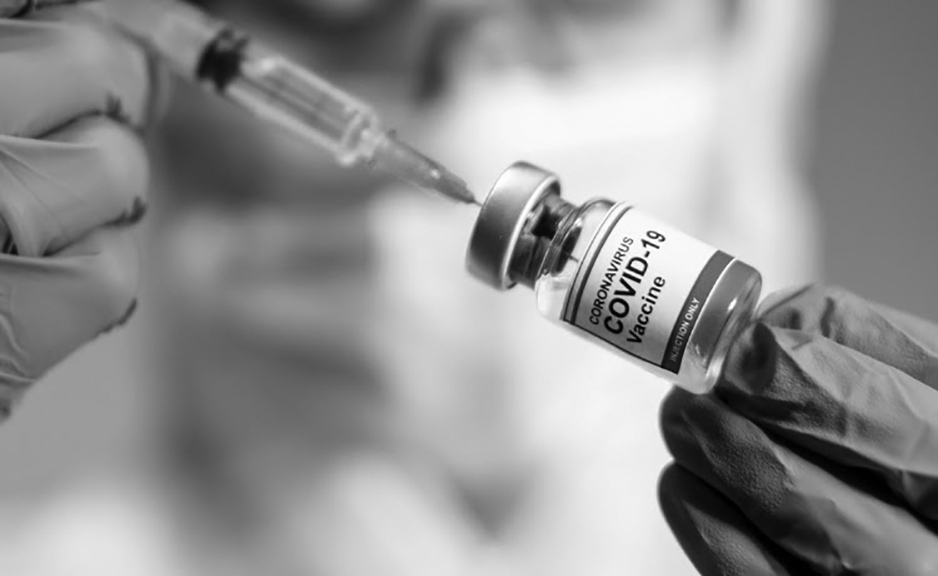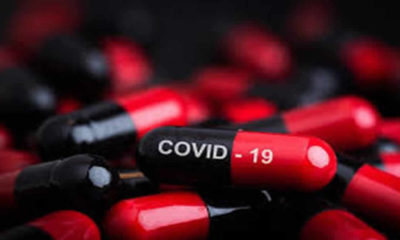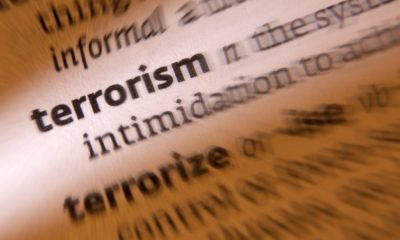
Featured Item

COVID-19 vaccine ‘will be a game changer’
Published
3 years agoon
By
Nicola MiltzVirology experts in South Africa have allayed fear of COVID-19 vaccines, saying they are a “triumph of science”, and are likely to be game changers. However, they are clear that South Africans have months to wait before rolling up their sleeves.
Given the breakneck speed with which the COVID-19 vaccines have been developed – less than a year since the virus was identified – many in the community are sceptical about having the jab, worried about safety and efficacy.
“There are many who are understandably wary of the safety of the new COVID-19 vaccines,” says Professor Barry Schoub, the chairperson of South Africa’s ministerial advisory committee on coronavirus vaccines. “The development of these vaccines has been rushed through at five to 10 times the speed of other human vaccines.”
In addition, he says, people are worried about the novel formats of these vaccines, such as RNA vaccines and carrier-virus vaccines, which have never been used in humans before.
“Those who are hesitant need to be reassured by the rigour and thoroughness of the safety monitoring at all steps of development,” Schoub says.
During clinical trials, the safety of a candidate vaccine is carefully assessed by an independent data safety monitoring board which would immediately close down a clinical trial should there be any incident of a significant vaccine-related side effect.
“Following successful completion of the trial for safety and efficacy, the vaccine is submitted for licensing,” he says. “It again undergoes rigorous scrutiny by a stringent regulatory authority [SRA] often the Food and Drug Administration [FDA] of the United States (US), and often also a WHO [World Health Organization] prequalification evaluation and inspection. Each country then does its own inspection and evaluation.”
In South Africa, the South African Health Products Regulatory Authority (SAHPRA) also scrutinises the data for safety and efficacy. Only then is the vaccine licensed for use in the general population.
So far, no significant vaccine-related side effects have been recorded for any of the COVID-19 vaccines, now followed up for more than two months, Schoub says, describing them as “a triumph of science”.
South Africa watched as the United Kingdom (UK) began to roll out multiple doses of the first COVID-19 vaccine this week, becoming the first Western country to start vaccinating its citizens outside of clinical trials. This occurred after British regulators gave emergency authorisation to the drug produced by Pfizer and BioNTech. The US, which has just had its deadliest week for coronavirus since April, is also likely to decide this week whether to give the vaccine the green light.
However, experts say South Africa can expect to receive the vaccine for only about 10% of our population, most probably towards the middle of next year. This will also be prioritised with those most in need being first in line.
While the wait may seem long relative to other parts of the world, it’s only a nanosecond in vaccine terms.
It was welcome news for many in the community when out of the gloom of the pandemic came reports of the results of the clinical trials of the three front-runner vaccines. The finding of 95% efficacy for the two mRNA vaccines – Pfizer BioNTech and Moderna – more than exceeded the wildest expectations of the manufacturers and medical science, says Schoub, who is also a virologist and the former director of the National Institute for Communicable Diseases (NICD).
Furthermore, he says, recent studies have shown that the immune response holds for at least three months and hopefully much longer, as future studies may well show. A third vaccine, Astra Zeneca/Oxford, also performed well, achieving 72% efficacy.
Vaccines have been instrumental in treating many viral diseases. One only needs to look at the total eradication of smallpox, the eradication of wild polio in Africa, and very significant control of other vaccine-preventable infectious diseases, says Professor Lucille Blumberg, the deputy director of the NICD.
“In many cases, they have been instrumental in eradicating disease,” she says.
“The vaccine is coming to South Africa, and it will be a game changer. In such a short time, results are promising. We don’t know if it will stop transmission of the virus, but it may stop you from getting it severely. We still don’t know about safety, but so far the data is reassuring,” she says.
Schoub says vaccines could be the answer for the COVID-19 pandemic “once certain criteria are met”.
“Vaccine-induced immunity would need to be durable, at least for a few years, and in addition, a high enough proportion of the population would need to be covered,” he says.
However, being a middle-income country, South Africa doesn’t have the financial resources of the US, UK, and the European Union, which have collectively pre-purchased more than a half of the current total global production of vaccines.
In order to achieve equitable vaccine distribution to middle and low-income countries, a pooled procurement facility called COVAX was formed by the WHO and several partner organisations.
“South Africa has committed to the COVAX facility along with 189 other countries, and expects to receive vaccines for about 10% of our population, probably towards the middle of next year,” said Schoub.
But he said that given the parlous state of the economy, the country may not be able in the short term to purchase vaccines beyond that needed for the immunisation of special high-risk groups such as healthcare workers and residents of care homes for the aged.
“When and where the country will be able to immunise the whole population will depend on the availability of vaccines from manufacturers [who need to provide for global demand], and the ability of treasury to find the necessary funds,” he said.
He believes about R2 billion would be needed to purchase the vaccine for 10% of the population. However, the total cost could be substantially higher taking into account the cold chain, which includes storing and transporting vaccines, distribution, additional materials, logistics, record-keeping, and personnel costs.
“While the initial selective immunisation of high-risk groups could be managed relatively easily, immunisation of the entire population in the future will be on an unprecedented challenging scale,” Schoub says.
South Africa doesn’t have a programme in place to target the vaccination of adults, so the more familiar infant and childhood immunisation strategy would need to be scaled up to reach the entire population.
A further challenge to vaccine coverage would come from people refusing vaccination because they are unsure of the safety of these novel vaccines.
mRNA vaccines are a new type of vaccine to protect against infectious diseases. To trigger an immune response, the vaccines put a weakened or inactivated germ into our bodies. They teach our cells how to make a protein that triggers an immune response. That response, which produces antibodies, is what protects us from infection if the real virus enters our bodies.
Eventually, Schoub says, it will be vaccines which will control the COVID-19 pandemic. In the meantime, we need to rely on non-pharmaceutical interventions and we will need to maintain these well after the advent of the vaccine era.










